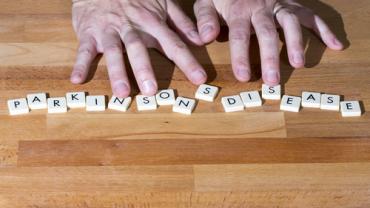
Unlike the cliché about Las Vegas, what happens in the gut doesn’t stay in the gut.
Recent years have seen an explosion in research on the gut-brain axis, and the wide-ranging ways in which gut health influences the health of tissues and glands that otherwise seem wholly unrelated to the gastrointestinal tract. Celiac disease is the most obvious manifestation of an intestinal pathology that has far-reaching effects throughout the body. But even in individuals without celiac disease—that is, little or no overt destruction of intestinal villi—increased intestinal permeability (“leaky gut”) and/or altered gut flora have been linked to the genesis of autoimmune disorders, skin problems, and even psychological and mood issues. Papers in the scientific literature are peppered with terms like “gut-brain axis,” and there may also be a “gut-skin axis” and a “gut-joint axis.” With conditions in the gut having an influence over so many pathological processes in different parts of the body, might goings on in the gut have a role in Parkinson’s disease?
There’s no denying intestinal function has a major influence on the brain, and vice-versa. It’s not for nothing that the enteric nervous system (ENS) is called “the second brain.” But what might be the connection between this second brain and Parkinson’s disease (PD)?
Well, for starters, it’s long been understood that PD patients may experience constipation, nausea, gastroparesis and other GI effects—and that some of these occur before the onset of motor symptoms, and before a PD diagnosis is made. Researchers have observed that lesions in the ENS occur at a very early stage of the disease, before any signs that the central nervous system is being affected. Another telling finding is the presence of Lewy bodies in the Auerbach’s and Meissner’s plexuses of the intestinal tract. Some researchers have gone so far as to say, “The presence of pervasive α-synuclein deposition in the gastrointestinal tract strongly implicates this system in the pathogenesis of Parkinson’s disease.” It may be that PD starts in the gut, and the motor symptoms are a relatively late development, after the disease process has been in place for some time.
Researchers have noted, “the onset of molecular and cellular neuropathology of PD likely occurs decades before the onset of the motor symptoms characteristic of PD. […] All current interventions have limited therapeutic benefit for disease progression because damage likely has progressed over an estimated period of ~5 to 15 years to a loss of 60%-80% of the nigral DA neurons, before symptoms emerge.”
To clarify: by the time someone presents with motor symptoms, the pathology may have been in place for as long as 15 years, and as much as 80% of the dopaminergic neurons may already be lost. Not exactly the most heartening news.
Parkinson’s patients have a greater incidence of small intestinal bacterial overgrowth (SIBO) compared to healthy controls. Some studies have found the presence of SIBO to be associated with worse GI symptoms and worse motor function, while others have found an association between SIBO and worse motor function but not worse GI symptoms. Either way, it seems possible that SIBO may contribute to deteriorating motor function in PD patients.
The accumulating research on the connections between intestinal events and the pathogenesis of PD is fascinating, and it might hold the key to new and previously unexplored therapeutic avenues. As is true for so much of medical research, these findings raise more questions than they answer. However, taken as a whole, they indicate that there may be a role for dietary therapies in PD. Considering there are few effective drugs available for PD (the main one, Levodopa, typically loses efficacy over time, and most PD drugs come with unwanted and potentially harmful side-effects), this is an area of great promise. At best, medications for PD improve symptoms in the short term. They do nothing to modify the disease process.
On the other hand, it’s possible that a dietary intervention “might influence the gut-brain axis by altering microbiota composition or by affecting neuronal functioning in both the ENS and the CNS,” and “food-based therapies might then have an impact on PD pathology and/or improve non-motor as well as motor symptoms.” A ketogenic diet was shown to significantly improve scores on the Unified Parkinson’s Disease Rating Scale (UPDRS) in a small cohort of PD patients. While this is not a slam-dunk, and a ketogenic diet is not the same thing as a specific gut-healing diet and supplement protocol, it still demonstrates the power of a dietary intervention to make a significant impact on a neurological disorder for which conventional therapies are disappointing.
Hippocrates beat everyone to the punch when he said all disease begins in the gut. As we are learning now, thousands of years later, this may be true even of conditions we normally think of as completely unrelated to the gut.